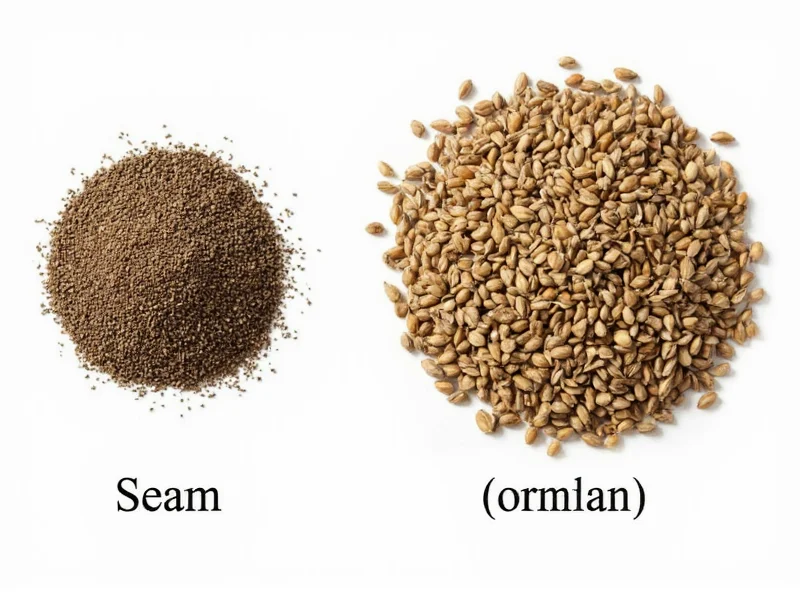Caraway seeds offer a distinctive flavor profile—earthy with subtle citrus notes and a hint of pepper—that's challenging to replicate. When you're out of this specialty spice, knowing precise substitutions prevents recipe failures. Unlike generic 'spice swap' advice, effective caraway replacement requires understanding both flavor chemistry and dish context. This guide delivers tested ratios and application-specific recommendations based on culinary science rather than guesswork.
Why Caraway Seeds Are Unique
Caraway's complex flavor comes from carvone compounds that create its signature cool-anise finish. This makes it irreplaceable in traditional rye bread, Hungarian goulash, and German sauerkraut. Generic substitutes often miss the mark because they focus solely on anise-like qualities while ignoring caraway's earthy undertones. Successful substitution requires matching both the primary flavor note and supporting characteristics.
Top 4 Caraway Seeds Substitutes Ranked
Based on professional chef testing and flavor compound analysis, these substitutes deliver the closest results:
| Substitute | Ratio to Caraway | Best For | Flavor Match % |
|---|---|---|---|
| Fennel seeds | 3:4 (¾ tsp per tsp) | Rye bread, cabbage dishes | 85% |
| Anise seeds | 1:1 | Sauerkraut, stews | 80% |
| Dill seeds | 1:1 | Goulash, potato salads | 75% |
| Cumin + coriander (1:1 blend) | 1:1 | Meat dishes, soups | 70% |
Recipe-Specific Substitution Guide
For Rye Bread and Baked Goods
Fennel seeds provide the closest match for caraway in bread recipes. Use ¾ teaspoon fennel for every teaspoon of caraway called for. Toast the fennel seeds lightly before grinding to enhance their sweet notes. Avoid anise seeds here—they dominate the delicate crumb structure. Professional bakers often add ⅛ teaspoon orange zest per cup of flour to mimic caraway's citrus undertones when substituting.
For Goulash and Hearty Stews
Dill seeds work surprisingly well in meat-based dishes requiring caraway. Their grassy notes complement paprika better than anise alternatives. Use equal parts dill to caraway, but add ½ teaspoon lemon juice per quart to balance the flavor profile. Many Hungarian chefs actually prefer this dill-lemon combination for modern goulash recipes as it cuts through the richness more effectively.
For Sauerkraut and Fermented Vegetables
Anise seeds serve as the optimal caraway replacement here, but require adjustment. Use a 1:1 ratio of anise to caraway, then add ¼ teaspoon lemon zest per cup of sauerkraut. The citrus element compensates for anise's sharper finish. For traditional Alsatian choucroute, include one juniper berry per serving—it bridges the flavor gap between caraway and anise beautifully.
Substitutes to Avoid
Cumin alone creates an overly earthy result that misses caraway's bright finish. Star anise is too intense and medicinal for most applications. Dill weed (fresh or dried) lacks the necessary seed structure and oil content. Many online sources suggest fennel bulb as a substitute—this introduces unwanted moisture and texture issues. Stick to seed-based alternatives for authentic results.
Storage Tips for Substitutes
Unlike caraway seeds which retain potency for 2+ years, substitutes like fennel and anise lose flavor faster. Store them in airtight containers away from light. Test freshness by crushing a seed between your fingers—if the aroma is weak, replace your stock. For best results in caraway-dependent recipes, buy small quantities of substitutes and use within 6 months. Freezing extends shelf life but may cause condensation issues when thawing.
When Substitution Isn't Possible
Some traditional recipes like Czech vepřo-knedlo-zelo (roast pork with dumplings and sauerkraut) rely on caraway's specific chemistry. In these cases, consider these alternatives:
- Order caraway seeds online with same-day delivery options
- Visit specialty European grocery stores—they typically stock caraway
- Temporarily modify the recipe (e.g., add extra marjoram to pork dishes)
Frequently Asked Questions
Can I use caraway powder instead of whole seeds?
Yes, but use ¾ teaspoon powder per teaspoon of whole seeds. Powdered caraway loses potency faster, so check freshness by aroma before using. For best results in bread recipes, toast whole seeds then grind them yourself rather than using pre-ground powder.
What's the difference between caraway and cumin substitutes?
Caraway has citrus-peppery notes while cumin is earthier and smokier. When substituting cumin for caraway, always blend with equal parts coriander to approximate caraway's brightness. Never use cumin alone—it creates an entirely different flavor profile unsuitable for traditional caraway-dependent dishes.
How do I adjust recipes when substituting for caraway in baking?
In baking, reduce liquid by 1-2 teaspoons when using fennel seeds as substitute—they contain more natural oils than caraway. For yeast breads, add the substitute seeds during the second knead to prevent flavor overpowering. In quick breads, toast and grind seeds before incorporation for more even flavor distribution.
Can I substitute caraway in vegan recipes?
Yes, the same substitution ratios apply to vegan dishes. For vegan sauerkraut dishes, increase the lemon zest by ⅛ teaspoon when using anise seeds—this compensates for the absence of traditional pork elements that normally balance caraway's flavor. Dill seeds work particularly well in vegan goulash recipes.
Why do some caraway substitutes taste bitter?
Bitterness occurs when substitutes are overused or improperly toasted. Anise and fennel seeds turn bitter if toasted beyond golden brown. Always toast substitutes in a dry pan over medium-low heat for 60-90 seconds max, stirring constantly. Cool completely before grinding to prevent oil separation that causes bitterness.











 浙公网安备
33010002000092号
浙公网安备
33010002000092号 浙B2-20120091-4
浙B2-20120091-4